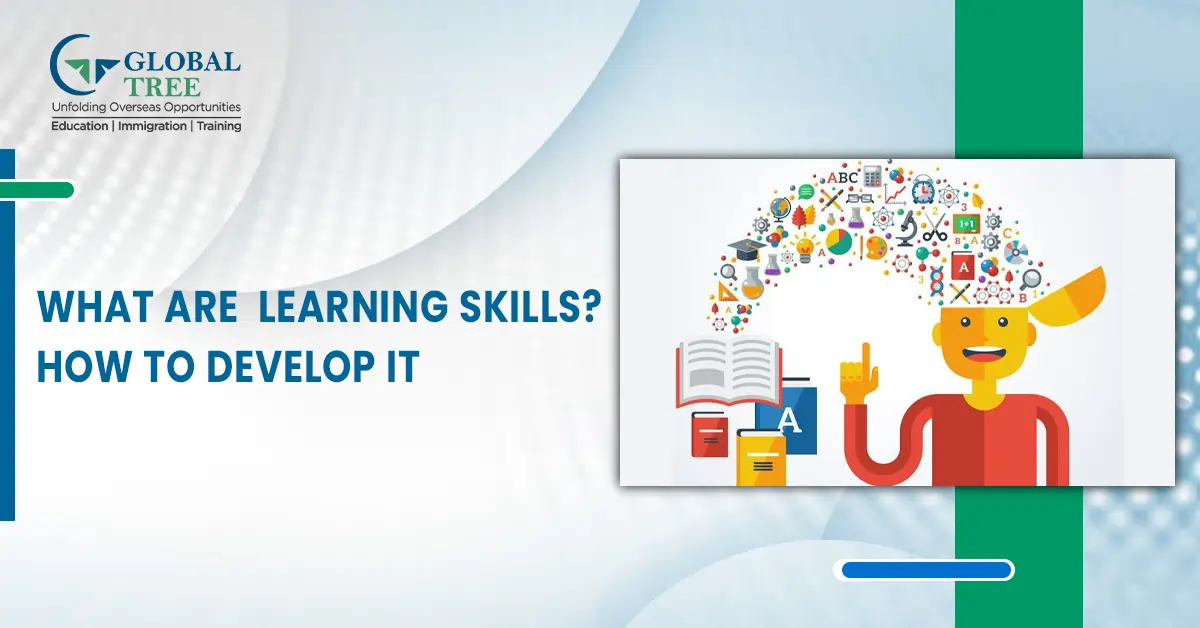What are learning skills? How to Develop it

- What are Learning Skills?
- Key Learning Skills
- Developing Learning Skills:
- 1. Set Clear Goals
- 2. Practice Active Learning
- 3. Improve Time Management
- 4. Develop Note-Taking Skills
- 5. Enhance Critical Thinking
- 6. Build Problem-Solving Skills
- 7. Strengthen Research Skills
- 8. Improve Communication Skills
- 9. Stay Motivated and Disciplined
- Conclusion
What are Learning Skills?
Learning skills are the abilities and strategies that enhance an individual's capacity to acquire, process, and apply knowledge effectively. These skills are fundamental for academic success, professional development, and lifelong learning. Learning skills encompass a broad range of competencies, including critical thinking, time management, note-taking, problem-solving, and effective communication.
Key Learning Skills
- Critical Thinking: Critical Thinking is the ability to analyze information objectively and make reasoned judgments. It involves evaluating sources, identifying biases, and forming well-supported conclusions.
- Time Management: The capacity to organize and plan time effectively to balance various tasks and responsibilities.
- Note-Taking: Techniques for capturing key information during lectures or reading sessions, making it easier to review and understand later.
- Problem-Solving: The ability to identify problems, generate possible solutions, and implement the best course of action.
- Effective Communication: Skills in conveying ideas clearly and persuasively, both in writing and verbally.
- Research Skills: The ability to locate, evaluate, and use information from various sources.
- Self-Discipline: The ability to stay focused and motivated, even when faced with challenges or distractions.
Developing Learning Skills:
Developing learning skills requires a proactive approach and consistent practice. Here are some strategies to enhance your learning abilities:
1. Set Clear Goals
Define what you want to achieve in your learning process. Setting specific, measurable, achievable, relevant, and time-bound (SMART) goals can help provide direction and motivation.
Example: Instead of a vague goal like "improve my math skills," set a SMART goal such as "complete five algebra exercises each day for the next month."
(Read More: What is personal goal setting? Is it important?)
2. Practice Active Learning
Active learning involves engaging with the material through discussions, practice, and application rather than passive reading or listening.
Engage in Discussions: Join study groups or participate in class discussions to deepen your understanding.
Apply Knowledge: Use what you've learned in practical situations or through exercises and projects.
3. Improve Time Management
Effective time management helps balance study with other activities and responsibilities.
Create a Schedule: Use a planner or digital calendar to allocate specific times for studying, breaks, and leisure activities.
Prioritize Tasks: Focus on high-priority tasks first and break larger projects into manageable chunks.
4. Develop Note-Taking Skills
Effective note-taking helps retain and understand information better.
Use Abbreviations and Symbols: This can make note-taking faster and more efficient.
Organize Notes: Use headings, bullet points, and numbering to structure your notes clearly.
Review Regularly: Go over your notes soon after taking them to reinforce your memory.
5. Enhance Critical Thinking
Critical thinking involves questioning assumptions and evaluating evidence.
Ask Questions: Challenge assumptions and ask "why," "what if," and "how" questions to deepen your understanding.
Analyze Arguments: Practice breaking down arguments to assess their validity and strength.
6. Build Problem-Solving Skills
Problem-solving skills are crucial for academic and real-world success.
Practice Regularly: Engage in activities that require problem-solving, such as puzzles, games, or coding exercises.
Reflect on Solutions: After solving a problem, review your process to identify what worked and what could be improved.
7. Strengthen Research Skills
Good research skills involve finding and evaluating information effectively.
Use Reliable Sources: Learn to distinguish between credible and non-credible sources.
Take Advantage of Libraries: Utilize physical and online library resources for access to a wide range of information.
8. Improve Communication Skills
Effective communication skills is vital for expressing ideas clearly and persuasively.
Practice Writing: Regularly write essays, reports, or journal entries to improve your writing skills.
Engage in Public Speaking: Join clubs like Toastmasters to practice and enhance your verbal communication skills.
9. Stay Motivated and Disciplined
Maintaining motivation and discipline is key to continuous learning.
Set Rewards: Give yourself small rewards for completing tasks or reaching milestones.
Stay Positive: Maintain a positive attitude and remind yourself of the benefits of your efforts.
Conclusion
Learning skills are essential for personal and professional growth. By setting clear goals, practicing active learning, managing time effectively, improving note-taking, enhancing critical thinking, building problem-solving skills, strengthening research abilities, and improving communication, individuals can develop robust learning skills. These strategies not only help in academic settings but also contribute to lifelong learning and success. Consistent practice and a proactive approach are key to developing and refining these skills.


